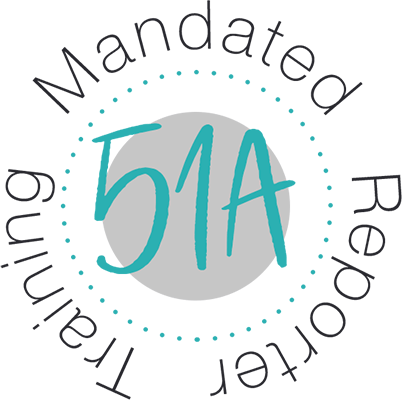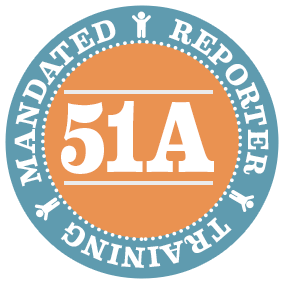Online Mandated Reporter Training
All mandated reporters should receive training on how to recognize and report child maltreatment (abuse, neglect, and/or exploitation). Those who are professionally licensed by the Commonwealth of Massachusetts are required by law to do so. (M.G.L. c. 119, § 51A(k)).
This online training was designed to fulfill that requirement.
Emotional Safety
Individuals can be deeply affected by exposure to child maltreatment. This exposure can come in many forms for mandated reporters. For example, direct-care work with child victims, hearing disclosures of child maltreatment, and even taking a training about the topic. When this happens, it is important to monitor your responses and engage in self-care. If this training is triggering for you, you can pause, step away, and resume the training later.
Vicarious and secondary trauma can be a challenge for anyone, particularly those working in fields that continuously expose them to victims of trauma and violence, those who have their own prior traumatic experiences, and those who lack effective and supportive systems for processing the traumatic content of their work.
If you are experiencing vicarious or secondary trauma or are feeling triggered by traumatic material, consult with your supervisor and seek additional support.
Additional Resources
The National Child Traumatic Stress Network
NCTSN Taking Care of Yourself Tip Sheet
Office for Victims of Crime's Vicarious Trauma Toolkit
Compassion Fatigue Awareness Project's Self-Care Tips for Helpers

